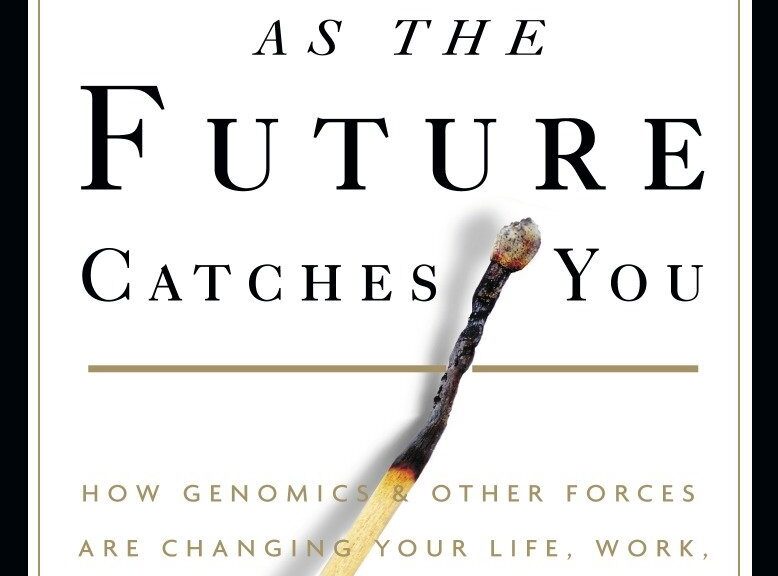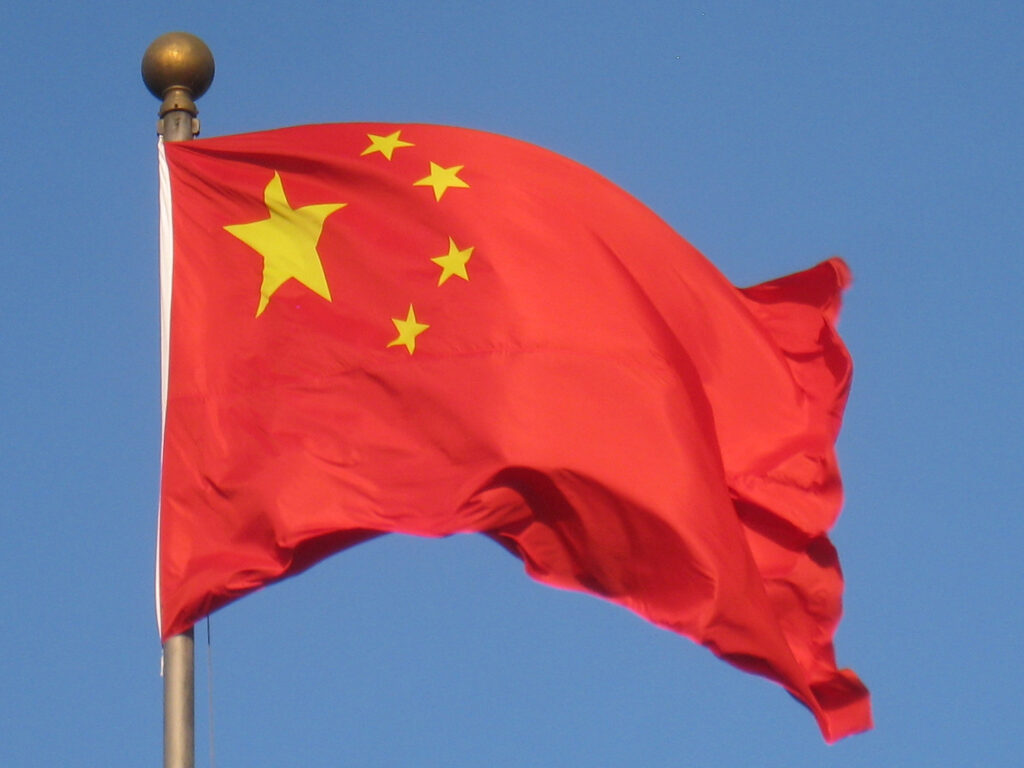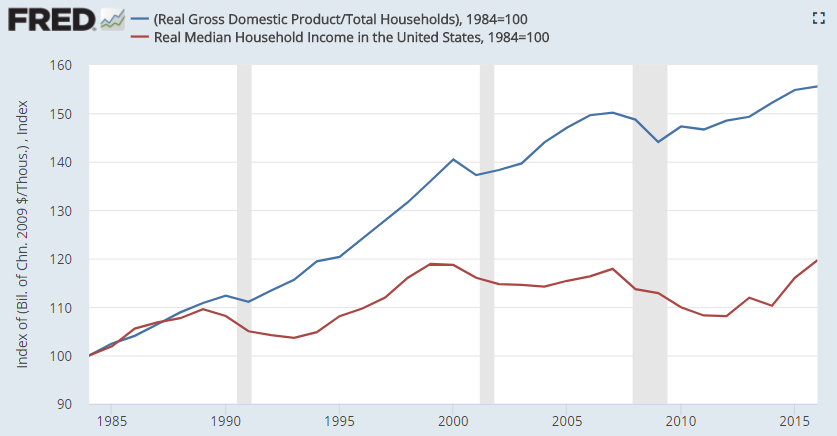
As the Future Catches You
My Very Exciting Clerical Work
I’ve recently reclaimed a significant enough amount of free time that I’m finally able to revisit and catalogue about a decade’s worth of notes. On everything. In all of the formats. I know that while for most the sound of digging through old papers and hyperlinks and then putting them in one neatly organized location rings as dull and awful and boring work, but I’m actually pretty excited about it.
The first interesting stray topic that I’ve found so far is a set of short notes on an old book that I’m very fond of.
As the Future Catches You was written by Juan Enriquez and published just about 20 years ago exactly. Enriquez is an interesting figure, in that he’s decently distinguished in the business world, but nearly all of his published work seems to revolve around genomics. With more recent titles such as Evolving Ourselves: How Unnatural Selection and Nonrandom Mutation are Changing Life on Earth (2015), he makes for an odd mix of perspectives, in that there is a clear understanding of economic history and a deep fondness for biotechnology. That perspective is made no less unusual by the incredibly… eclectic style that As the Future Catches You is written in.
Every page has different formatting, fonts, indentations, uses of pictures… The book is so internally dissonant that it reaches the point where it visually bears more resemblance to an overly-stylized book of poems than any serious investigation of the future of the world economy. Despite appearances however, the book is indeed a genuine effort at providing an interesting (if somewhat cursory) look at how genomics and bioinformatics might change the global economy.
The Book, in Short
In very broad strokes, I would say the salient points of the book are:
- The history of mankind’s greatest steps forward can be told through it’s achievements in understanding and transmitting abstract concepts.
- As one of many, the advent of the internet is such an example of this ability to communicate which has transformed growth in the world economy. In this particular case, we watched the global economy change from being manufacturing-based to being knowledge-based.
- In particular, from the 60’s to the late 90’s, we can see that societies which relied on manufacturing and did not promote education and knowledge-based products became poorer, in contrast to those that did.
- In the future, the nations that will thrive will be the ones with an educated populous, and a government that fosters both political and economic stability.
- This is because these nations will not only attract the greatest minds and contribute the most to key scientific endeavors, but they will also be able to manage and adapt to an increasingly volatile economy built around increasingly powerful international tech companies.
- Enriquez believes firmly that the future of the world’s economy will be dependent on each nation’s ability to capitalize on intellectual property in arenas intersecting computer science and biology; particularly genomics, proteomics, computational biology, and nanotechnology.
The Retrospective
I was happy to have revisited some of my notes on this book around its 20th anniversary, and since 2020 comes up in the book as a point to look towards, I thought it would be interesting to see how the book held up. I have the distinct advantage of being alive in the time where the author believed this sort of bioinformatic revolution might happen, and at least a very basic understanding of some biology, computer science and economics. While there have been a number of upstarts in the biotech industry (CRISPR technology springs to mind) and some spectacular failures (lol, Theranos), I would say the author may have been a bit optimistic in his estimated timeline.
As someone who studied computer science and has a deep (and non-technical) fondness for biology, I tend to have a pretty heavy bias towards agreeing with Enriquez in thinking that these industries will be incredibly influential. There are a nearly limitless number of applications to improving the quality of human life by harnessing the power of our genome via computation-driven research.
However. There are at least a couple very important aspects that I don’t think the book quite touched on.
The first would be the Chinese economy. One of Enriquez’s predictions involved several biotech companies following internet-based tech companies and joining their ranks among the largest and most powerful companies in the world. During that time however, the most easily identifiable disruption among those ranks that I can see would be the increased presence of state-sponsored Chinese utility companies.
Even around the time the book was written, it was generally understood that China was experiencing unprecedented economic growth in bringing however many millions of people out of poverty, and along with that economic growth there would come intellectual property and expertise. Books like China Inc. (2005) touch on this, and for the most part these kind of predictions held true. China overtook the US in patent filings as of 2019, and the publication of scientific research in 2018 (although the integrity of Chinese research is often questionable).

Now I don’t mean that the author ignored the existence of China or its growth, but that his examination of China was limited in observing its increasingly intellectual population, rather than how its particular economic model would work in the future. The author did take some swipes at the EU for effectively banning the use of GMO’s, and mentioned that the ability to regulate biotech laws would be important, but didn’t really touch on economic models as far as I can recall. It’s hard to describe exactly what China’s governing style is, since it’s not Capitalism, not Communism, and frankly doesn’t seem to fit the party title of “Socialism with Chinese Characteristics” very well, but regardless of whatever its name is, it has proven to be an increasingly powerful force in the world economy.
Looking at the world’s 50 largest companies by consolidated revenue in 2018, we see that nine of them are Chinese state-owned companies in the industrial and financial sectors. This sector alone outnumbers the Apples, Amazons, Googles, and Samsungs of the world, and only two pharmaceutical companies currently make the list. In short, there has been a clear increase in giant tech companies in the world, but not enough to completely displace the ever-present financial and oil-and-gas industries. Additionally, custom pharmaceuticals have yet to make any kind of a real dent in things.
If I were to be as bold to make a 20-year prediction, I would guess that were are more likely to see the number of Chinese state-owned companies on that list double than we are to see a dozen custom biotech companies break onto the scene (and yes I will include HuaWei among those companies if it happens). If we are going to see biotech companies break onto the scene, I would also find it completely unsurprising if as many as half of them were also indirectly sponsored by the country that brought us our first en-vivo gene-edited humans.
The second set of factors that I don’t recall the author mentioning when looking at the the future of the world economy is the fact that there simply isn’t much of a short-term incentive in a capitalist America (or any capitalist country, really) to prioritize an educated and happy population. Metrics like GDP and trade are excellent for measuring wealth in a country, but they by no means represent the well-being of the average citizen when there is an ever-increasing wealth gap and a majority of that growth will go to a small percentage of the population.

To avoid diving head-first into the merits and demerits of modern global capitalism, all that I mean to say is that the author’s perspective seemed to be rather based on the capability for growth in the biotech world to occur rather than any kind of underlying economic demand or systemic desire for it. Capitalism doesn’t need nations of thinkers, it needs nations of workers. And the ability to educate a populous does not equate to a demand for it.
Similarly to the author’s optimism on how different nations would embrace education and genomic research, the author seemed to be overly-optimistic in the rate at which leaps and bounds in research could be made. While Moore’s law seems to hold true (for now) with computers, the author seems to equate the doubling of processing power every year or two with a comparable body of research advancements in the field of biotech every year or two, which I can’t say I believe is a fair relationship to surmise.
In Summary
As someone who has always loved computers and biology, I would absolutely recommend Before the Future Catches You to anyone who wanted some light and thought-provoking reading on just one of many directions the global economy could head. Regardless of the author’s unusual (but fun) presentation and possibly somewhat narrow view of the future, I still think that the Enriquez’s larger points will absolutely hold true, even if perhaps along a much longer timeline than implied in the book.
I believe that while pharmaceutical companies are perfectly happy for now to lobby like crazy and spend nearly as much on advertisements as they do on research, custom pharmaceuticals are inevitable and that when they do finally reach us plebs on the market the demand will be nuts.
Not only will the demand be crazy, but I believe that the pipeline for administering genome-tailored medicine will eventually become exponentially more efficient than the current research pipeline that pharmaceutical companies use to push out drugs to the masses. This efficiency will be so great that moving to a computational-genomic approach to medicine will be a hallmark of who sinks or swims among big pharma companies.
Along with increased demand for personalized medicine, and a need for pharmaceutical companies to modernize in order to keep up, I also believe that personalized medicine will make some broad and sweeping changes to how medicine is advertised to the average person. If you thought the story of Target knowing a man’s daughter was pregnant before he did was intrusive, or get a little uncomfortable when you get new ads on every website you visit after buying something from an online merchant, then brace yourself for getting heart medicine recommendations after a public urinal took your DNA from the trace blood elements in your waste and sold your genetic info for big money. “Hello, McDonald’sCustomer157001382, we see that you are at 63% elevated risk for heart disease. Buy your custom Corazone® now!”
Online advertising and all of the tracking we see today with our phones and internet browsing is going to look absolutely harmless once that spooky shit takes off, but I’m pretty confident I will be old and will no longer care about things like ownership of my genetic information or personal privacy as long as I can get my Pfizer® brand de-aging gene-therapy with ready availability.
Hopefully I didn’t end this all on too somber a note, because I really and truly do think the applications of this kind of technology are fascinating and wonderful to think about, even despite the fact that the idea of big companies handling genetic info en-masse gets pretty dystopian pretty quickly.
I hope this piqued your interest in the future of bioinformatics and the book As the Future Catches You , and that you also enjoyed this post.
Thanks for reading,
— WellTree